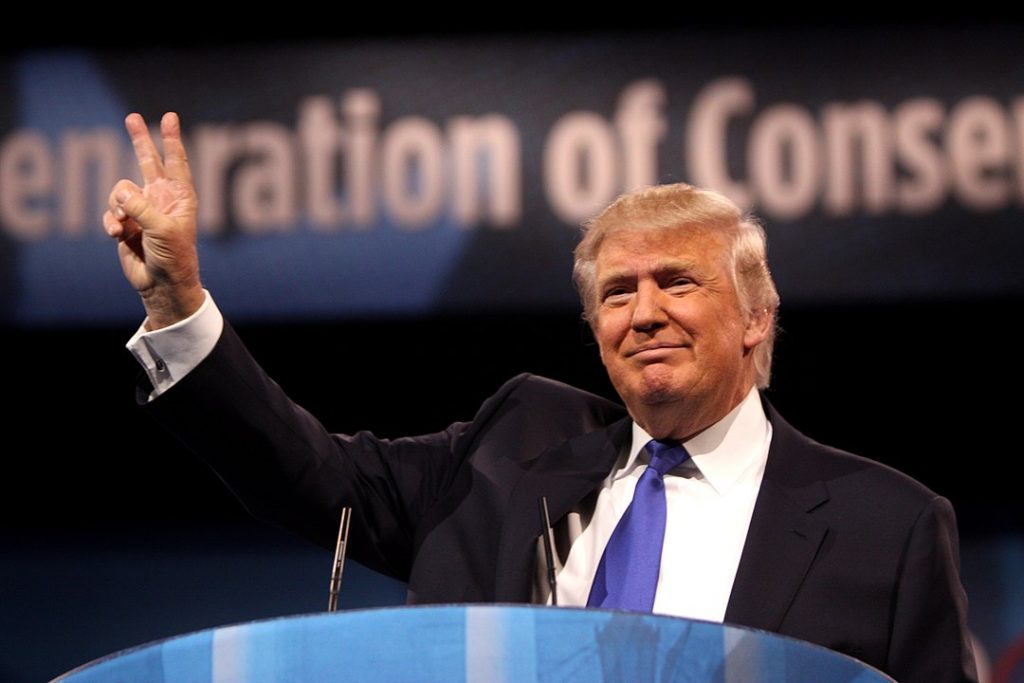What’s Next for Donald Trump’s Legal Battles?
With four separate criminal cases pending, Donald Trump’s legal future looks highly complex as he prepares to return to the Oval Office. His re-election could stall, reduce, or even halt proceedings in some cases, as he benefits from unique legal protections afforded to a sitting president. Here’s a closer look at the potential impact on each case and what lies ahead.
The January 6 Case: Attempt to Overturn Election Results
In one of the most high-profile cases, Trump was indicted on August 2, 2023, facing charges related to alleged efforts to overturn the 2020 presidential election and prevent Congress from certifying the results on January 6, 2021. This case includes a serious accusation of "conspiracy against the United States." Special Counsel Jack Smith, who is overseeing this case as well as one involving Trump’s handling of classified documents, recently requested a judge in Washington, D.C., to suspend legal proceedings until December 2, arguing that the government needs time to assess the impact of Trump’s re-election on this unprecedented situation.
The Department of Justice’s long-standing policy, dating back to 1973, prevents the indictment of a sitting president on federal charges. This prohibition stems from concerns that prosecuting the president would “unconstitutionally undermine” the executive branch’s ability to perform its duties. Trump’s inauguration on January 20, 2025, could bring this policy back into play, potentially providing Trump with a strong defense against federal indictments, including the conspiracy charge tied to the January 6 case. Trump, who has repeatedly vowed to "fire" Smith if re-elected, is expected to appoint an attorney general who may seek to dismiss Smith’s ongoing investigations. This political shift could lead to the case’s dismissal, making it unlikely that Trump will face trial on these charges while in office.
Classified Documents at Mar-a-Lago
Another federal case involves Trump’s alleged mishandling of classified documents at his Mar-a-Lago estate in Florida. While initially prosecuted at the federal level, the case faced a surprising development in July 2024 when Judge Aileen Cannon ruled that Smith’s appointment as special counsel was legally invalid, resulting in the dismissal of charges. This decision deviated from decades of federal legal precedent, prompting Smith’s team to appeal the ruling on August 26. The appeal has less to do with prosecuting Trump than with challenging Judge Cannon’s decision, which could undermine the judiciary’s power to appoint special prosecutors in the future.
Related: Steve Bannon, Fresh Out of Prison, Faces New Court Date on Border Wall Fraud Charges
The situation is further complicated by Judge Cannon’s connection to Trump. Appointed by Trump himself in 2020, her decisions favoring him have drawn scrutiny, with some observers questioning her impartiality. Her name has even circulated as a potential candidate for U.S. attorney general under the new Trump administration, which raises further questions about her involvement in any legal proceedings involving Trump. In light of Trump’s impending return to the presidency, the classified documents case may effectively come to a standstill, with legal experts doubting any significant progress until he leaves office again.
Election Interference in Georgia
Unlike the federal cases, the Georgia election interference case is handled at the state level, meaning Trump’s presidential powers have limited impact here. In this case, Fulton County District Attorney Fani Willis brought charges against Trump and 14 others for allegedly attempting to manipulate Georgia’s 2020 election results. Despite numerous legal maneuvers, Trump’s team has been unable to move the case from state to federal jurisdiction, which would afford him some protections under federal law.
State charges remain significant because a president cannot pardon state convictions, a power reserved only for the state’s governor. If convicted in Georgia before taking office on January 20, 2025, Trump would face potential consequences without the possibility of a federal pardon. However, legal experts consider it unlikely that this case would reach a conviction before inauguration, and the case may ultimately stall as Trump reassumes presidential duties. Trump’s legal team has already attempted to disqualify Willis from the case, a move that Judge Scott McAfee denied earlier this year. Trump’s lawyers appealed, with hearings scheduled for December 5, though a final ruling is not expected until at least March 2025. Observers predict that even if Willis remains involved, significant obstacles could prevent this case from advancing further.
Stormy Daniels Case: Business Record Falsification
The “Stormy Daniels case” in New York resulted in Trump becoming the first former president convicted in a criminal case, with a grand jury upholding 34 charges related to falsifying business records to conceal alleged payments to Daniels. New York Judge Juan Merchan initially scheduled sentencing for July 11 but was forced to delay due to a Supreme Court decision on presidential immunity. Sentencing has since been rescheduled for November 26, with Trump’s lawyers arguing that the president-elect should be afforded the same immunity protections as a sitting president.
Legal experts note that even if Judge Merchan issues a sentence, any significant punishment, such as a prison sentence, is likely to be deemed unconstitutional while Trump is president. Trump’s legal team has also requested the U.S. Court of Appeals for the Second Circuit to consider transferring the case to federal jurisdiction, similar to efforts in the Georgia case. A federal classification would potentially allow Trump’s administration to influence the case directly. Should Trump assume the presidency, his team is expected to continue fighting for jurisdictional changes, as well as appealing any adverse rulings, effectively stalling progress in the case until he leaves office.
Looking Ahead: The Legal and Political Implications
Trump’s impending return to the White House introduces substantial uncertainty into each of these cases. Federal cases, including those led by Special Counsel Jack Smith, are likely to stall or be dismissed under Justice Department guidelines that protect sitting presidents. Meanwhile, the Georgia and New York state cases face constitutional challenges and procedural delays, with Trump’s legal team expected to continue appealing any unfavorable rulings aggressively.
In early 2029, when Trump’s second term concludes, he will once again be subject to prosecution as a private citizen. However, a 2024 Supreme Court decision expanded the president’s criminal immunity, which could complicate any future efforts to prosecute Trump even after he leaves office. This decision has already led Smith’s team to revise certain charges to withstand higher scrutiny. Some experts question whether any charges would hold in court due to likely appeals by Trump’s lawyers.
For now, Trump’s re-election raises as many questions as it answers regarding his legal fate.





















